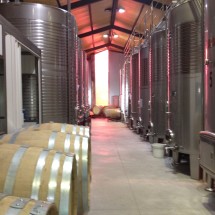Burning beer to make whiskey? An interesting collaboration between alcoholic beverage manufacturer licensee and farmer-distillery licensee has resulted in just that. The Boston Beer Co. announced its joint effort with Berkshire Mountain Distillers Inc. to formulate 500 gallons of two varieties of barrel-aged whiskey, deriving from Sam Adams Boston Lager and a limited-edition brew, entitled Cinder Bock. The spirits are being distilled and aged at the Great Barrington distillery and will be distributed through the distillery’s network, but with the Sam Adams name on the label.
Just this week, UBS, the financial firm, announced that it is downgrading the stock of Boston Beer Co. and in doing so analysts noted that the brewery industry is reaching a saturation point. Analysts have called this a “brewer-bubble.” Small craft brewers have been known to have disadvantaged economies-of-scale as there is limited distributors and limited space on retailer’s shelves for the “plethora” of new brews coming on line. Selling brewery product to a distillery may provide an innovative opportunity, new market and distribution channel for brewery-based products.
Presently there are relatively few distilleries licensed in Massachusetts, some of whom operate pursuant to a farmer-distillery license and others of whom operate pursuant to a manufacturer license. Distribution of a collaborative beer-to-whisky product, made with ingredients of brewery licensee on the one hand, and to be distilled by a distillery licensee on the other, takes advantage of a brewer licensee’s ability to sell its product to another manufacturer’s licensee, thus eliminating the need and cost of a wholesaler in the distribution process for this particular product.

